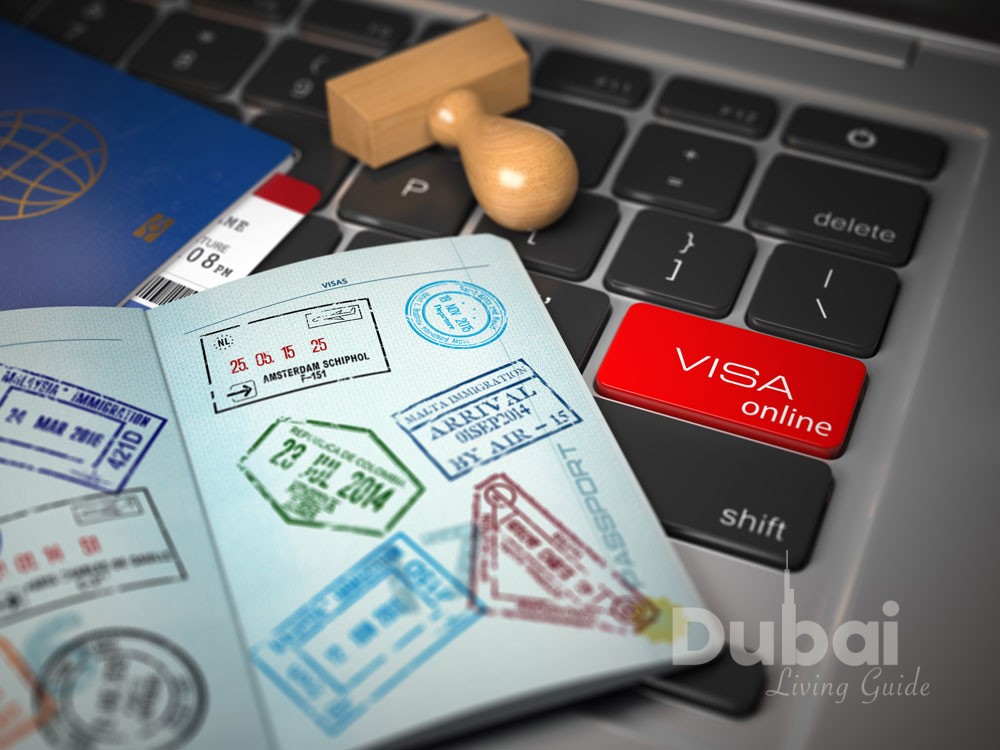💡 Quick Answer: How Do I Get an Employment Visa in UAE?
Getting an employment visa in UAE involves 5 main steps: securing a job offer, obtaining an entry permit, completing medical fitness tests, registering for Emirates ID, and getting your visa stamped in your passport. The entire process typically takes 2-4 weeks and costs around AED 5,000 out-of-pocket despite employers covering official fees. Your visa will be valid for 2-3 years and is tied to your specific employer.
⏱️ Read time: 7 minutes | Last updated: April 2025
Ok so here’s the thing about employment visa in UAE…. Let me share what I wish someone had told me when I first started this whole process. Getting work authorization in the Emirates isn’t rocket science, but it definitely has its quirks and complications that can catch you off guard if youre not prepared.
My Personal Journey with an Employment Visa in UAE
When I first decided to move to the UAE for work back in 2023, I had NO idea what I was getting myself into. The glossy recruitment brochures made it seem like companies just magically handle everything and poof – you’re working in Dubai! Well, ngl, the reality was quite different.
I remember sitting at my laptop at 2 AM, eyes glazed over from reading contradictory information about the employment visa in UAE requirements, thinking “what have I gotten myself into?” But now, two years later, I can honestly say the journey was worth it, and I want to share what I’ve learned to make YOUR transition smoother.
✍️ Written by Naz
Your Dubai Insider
As a proud resident of this bustling city for over 4 years, I’ve devoted my time to exploring Dubai’s vibrant cultural life, different ways of living, and endless possibilities. My experiences enable me to guide you through job searches, housing hunts, commuting, and vehicle purchases in Dubai—specializing in navigating the UAE’s employment visa system and work authorization processes.
📍 Living in Dubai for 4+ years | 🎯 Helping newcomers navigate Dubai life | 💼 Employment visa expert | 📅 Last Updated: December 2025
Understanding the Basics of Employment Visa in UAE
First things first – what exactly IS an employment visa in UAE? Basically, it’s your legal ticket to work in the country. Without it, you can’t legally work, open a bank account, rent an apartment, or get a local phone plan. It’s absolutely ESSENTIAL.
The employment visa in UAE is typically valid for 2-3 years (depending on your contract and employer) and is tied to your specific employer. This is super important to understand – your visa is linked to the company sponsoring you, not just to you as an individual.
Types of Employment Visas Available
There are several different categories of employment visa in UAE, and the one you need depends on your profession, qualifications, and employer:
- Professional Employment Visa – For qualified professionals with university degrees
- Skilled Labor Visa – For technicians and skilled workers
- Unskilled Labor Visa – For unskilled or semi-skilled workers
- Domestic Worker Visa – For household staff
My experience was with the professional employment visa in Dubai, which is the most common for expats working in corporate roles, but the general process is similar for most employment visas.
🔍 Types of Employment Visas in UAE
📝 Note: Recent UAE visa reforms (2025) have extended validity periods and added more flexibility for changing employers.
The Step-by-Step Process for Getting an Employment Visa in UAE
Let me walk you through the exact steps I went through to secure my employment visa in UAE. While your experience might vary slightly depending on your circumstance, this should give you a good idea of what to expect:
1. Job Offer and Employment Contract
Everything starts with a formal job offer. Once I accepted my position, my employer issued an employment contract that needed to be signed by both parties. This is the foundation for your employment visa in UAE application.
One thing I wish I’d known earlier – REALLY read the contract carefully! Some companies might include terms about visa costs or probation periods that could impact your situation later.
2. Entry Permit Application
Once my employer had my signed contract, they applied for my entry permit through the General Directorate of Residency and Foreigners Affairs (GDRFA). This is essentially a temporary visa that allows you to enter the UAE for the purpose of completing your employment visa process.
My employer handled this part, but I needed to provide:
- Passport copies (with at least 6 months validity)
- Professional qualifications/certificates
- Passport-sized photos (white background)
- CV/resume
📋 Complete Documents Required for Employment Visa
💡 Pro tip: Start the document authentication process BEFORE getting your job offer—it takes 3-6 weeks!
3. Medical Fitness Test
This was, tbh, one of the most surprising parts of the process for me. Once I arrived in the UAE, I had to undergo a medical fitness test at an approved health center. The test includes:
- Blood tests (including HIV screening)
- Chest X-ray
- General physical examination
Pro tip: Go EARLY in the morning! I made the mistake of going around noon and waited for hours. The lines at these centers can be crazy long, especially in Dubai.
4. Emirates ID Registration
Next came the Emirates ID application. This identification card is absolutely essential in the UAE and is required for literally everything from opening a bank account to getting a sim card. The application process involves:
- Filling out application forms
- Biometric data collection (fingerprints)
- Another set of photos
- Payment of fees
5. Visa Stamping in Passport
The final step was getting my actual employment visa in UAE stamped in my passport. My employer handled submitting all the paperwork, but I needed to provide my original passport for the stamping process.
This part was nerve-wracking cuz I had to be without my passport for several days, which feels really weird in a foreign country! Make sure you have copies of all your important documents during this time.
📊 Complete Employment Visa Process Timeline
💡 Note: Timeline can vary based on government processing speeds and completeness of your documents.
Common Challenges and How I Overcame Them
Let me share some of the speed bumps I hit while getting my employment visa in UAE, so you can hopefully avoid them:
Document Authentication Headaches
One of the BIGGEST surprises was learning that my university degree needed to be authenticated by:
- The notary public in my home country
- The Ministry of Foreign Affairs in my home country
- The UAE embassy in my home country
- The Ministry of Foreign Affairs in the UAE
This process took WEEKS and cost several hundred dollars. Start this process EARLY if possible!
The “Security Deposit” Confusion
My company initially mentioned I needed to pay a “security deposit” for my employment visa in Dubai. This didn’t sound right to me, and after some research, I confirmed that by law, the EMPLOYER should cover visa costs. Don’t let yourself get caught in this trap!
Salary Certificate Requirements
For certain services like opening a bank account or renting an apartment, I needed a salary certificate from my employer. But here’s the catch – they wouldn’t provide this until my employment visa in UAE was fully processed. It created this annoying chicken-and-egg situation where I couldn’t rent a proper place until my visa was done, but I needed an address for some visa paperwork.
Solution: My company arranged temporary accommodation for the first month. If yours doesn’t offer this, consider short-term rentals or hotel apartments for your first few weeks.
Special Considerations for Different Employment Visa Categories
Depending on your job and qualifications, there are some special things to keep in mind:
High-Skilled Professionals
If you’re coming to the UAE as a doctor, engineer, teacher, or other high-skilled professional, you’ll need to have your educational credentials verified through a process called “equivalency.” This is an additional step beyond basic authentication and can take extra time.
Entrepreneurs and Investors
In 2021, the UAE introduced new visa options for entrepreneurs and investors, including the ability to sponsor yourself through company ownership. I have a colleague who went this route for his employment visa in UAE, and while it provided more flexibility, it also required a significantly higher financial commitment upfront.
Remote Workers
One of the newest options (and one I’m considering for the future) is the remote work visa introduced during the pandemic. This allows you to live in the UAE while working for a company based elsewhere. It’s technically not the same as a traditional employment visa in UAE but serves a similar purpose for digital nomads.
💎 Pro Tips: Employment Visa in UAE Insider Secrets
🎯 Start Document Authentication EARLY
Your university degree needs 4-level authentication: notary public, home country’s Ministry of Foreign Affairs, UAE embassy, and UAE Ministry of Foreign Affairs. This process takes WEEKS and costs several hundred dollars. Don’t wait until you get your job offer!
💰 Real cost: AED 1,000-3,000 | ⏱️ Timeline: 3-6 weeks minimum
💰 Budget for “Hidden” Costs
Even though employers legally cover official visa costs, you’ll have out-of-pocket expenses. Medical tests run AED 300-700, Emirates ID is ~AED 300, and typing center fees add another AED 100-200. Smart move: save at least AED 5,000 for unexpected expenses during your first month.
📊 Total out-of-pocket: ~AED 5,000 (about $1,350)
⏰ Medical Test Timing Matters
Pro tip from personal experience: Go to approved health centers EARLY in the morning! I went around noon and waited for hours. The lines at these centers get crazy long, especially in Dubai. Arriving at 7-8 AM can save you 2-3 hours of waiting time.
⚡ Best time: 7-8 AM | Worst time: 11 AM-2 PM
📋 Read Your Contract CAREFULLY
Before signing anything, scrutinize the employment contract for terms about visa costs, probation periods, and notice periods. Some companies try to make YOU pay visa costs (which is illegal) or include restrictive clauses. Worth noting: any “security deposit” request for your visa is a red flag—employers should cover these costs by law.
🚨 Red flag: Companies asking for visa “security deposits”
🏠 Solve the Address Chicken-and-Egg Problem
Here’s the catch: you need an address for visa paperwork, but you can’t rent properly until your visa is processed. Banks also require salary certificates they won’t issue until your visa is done. Solution: negotiate temporary accommodation with your employer for the first month or book hotel apartments/short-term rentals.
💡 Workaround: Hotel apartments for first 2-4 weeks
🔄 Understand the 30-Day Grace Period
If you resign or your contract ends, you have ONLY 30 days after visa cancellation to secure a new employment visa, change visa type, or leave the country. Missing this deadline results in fines and immigration issues. tbh this is one of the most important things to track when changing jobs!
⚠️ Critical: Track your grace period countdown carefully
📱 Keep Digital Copies of EVERYTHING
During visa stamping, you’ll be without your passport for several days, which feels super weird in a foreign country. Keep digital copies of your passport, visa documents, Emirates ID application, medical test results, and employment contract. Store them in cloud storage you can access from anywhere.
📸 Essential: Passport copy, visa copy, Emirates ID, contract
🔍 Research Your Employer’s Visa Track Record
Before accepting any offer, check the company’s reputation on Glassdoor and try to speak with current employees. Some companies have troublesome histories with visa processing delays or hidden costs. Specialized recruiters can tell you which companies reliably sponsor visas and which to avoid.
✅ Use: Glassdoor, LinkedIn, recruitment agencies for research
The Real Cost of an Employment Visa in UAE
Let’s talk money. While technically your employer should cover the costs of your employment visa in UAE, there are often “hidden” expenses that caught me by surprise:
- Medical test fees: ~AED 300-700
- Emirates ID: ~AED 300
- Visa stamping: ~AED 500-3,000 (depending on visa type)
- Document authentication: Can range from AED 1,000-3,000
- Typing center fees: ~AED 100-200 (for form preparation)
All in, I spent about AED 5,000 (~$1,350) out of pocket despite my company covering the “official” visa costs. Make sure you budget for these extras!
💰 Complete Cost Breakdown: What You’ll Actually Pay
⚠️ Important: By law, employers should cover official visa fees. Any company asking you to pay visa costs or “security deposits” is a red flag!
Recent Changes to Employment Visa Regulations in UAE
The UAE government frequently updates visa regulations, and staying informed is crucial. Some significant changes that happened recently:
- Longer visa validity periods (now up to 3 years for many employment visas)
- New options for self-sponsorship
- Changed job classification systems that affect visa eligibility
- Relaxed rules for changing employers
As of April 2025, the UAE has continued to liberalize its employment visa system, making it somewhat easier for expatriates to change jobs without leaving the country. This is a HUGE improvement from when I first arrived!
Finding a Job for Visa in UAE: Tips from My Experience
If youre still in the job-hunting phase, here are some strategies that worked for me and friends when looking for employment that includes visa sponsorship:
- Industry-specific job boards: General sites like LinkedIn are good, but industry-specific platforms often have more legitimate opportunities with visa sponsorship.
- Networking events: Before I moved, I attended virtual networking events focused on my industry in the UAE. This led to two interviews!
- Recruitment agencies: Specialized recruiters familiar with the employment visa in UAE process can be invaluable. They know which companies reliably sponsor visas and which have troublesome histories.
- Company research: Before accepting any offer, research the company thoroughly. Check their reviews on Glassdoor and ask to speak with current employees if possible. Some companies have reputation issues with visa processing.

The Truth About Employment Visa Renewal and Cancellation
This is important – your employment visa in UAE isn’t permanent. Eventually, you’ll either need to renew it or have it canceled (if you change jobs or leave the country).
Renewal Process
The renewal process is generally simpler than the initial application. About 1-2 months before expiration, your employer should initiate the renewal process. You’ll need another medical test and to update your Emirates ID, but it’s less paperwork intensive than the first time around.
Cancellation Process
If you resign or your contract ends, your employer MUST cancel your employment visa in UAE. This is non-negotiable and extremely important. After cancellation, you typically have a 30-day grace period to either:
- Secure a new employment visa in UAE
- Change to another visa type
- Leave the country
Missing this deadline can result in fines and potential immigration issues. Don’t risk it!
Living on an Employment Visa in UAE: Rights and Limitations
There’s a lot of confusion about what you can and cannot do while on an employment visa in UAE. Here’s what I’ve learned:
You CAN:
- Rent property
- Open bank accounts
- Sponsor family members (with sufficient salary)
- Drive (with proper license conversion)
- Travel in and out of the UAE freely
You CANNOT:
- Work for any company other than your sponsor
- Run a side business without proper licenses
- Stay indefinitely if you lose your job
- Change employers without the proper transfer procedures
Understanding these boundaries is crucial for a smooth experience living and working in the Emirates.
❓ Frequently Asked Questions About Employment Visa in UAE
Final Thoughts: Is an Employment Visa in UAE Right for You?
After two years working here on my employment visa in Dubai, I can honestly say it’s been worth the bureaucratic hurdles. The professional opportunities, tax advantages, and lifestyle have all lived up to expectations.
That said, the employment visa in UAE system creates a significant dependence on your employer. This can be limiting if you’re entrepreneurial or value absolute independence. Consider your personal and professional goals carefully before committing.
If you do decide to pursue an employment visa in UAE, start preparing documentation early, build a financial buffer for unexpected costs, and connect with others who’ve been through the process for support and advice.
📝 Key Takeaways: Employment Visa in UAE
- Timeline: Expect 2-4 weeks for the complete employment visa process after arrival, plus 3-6 weeks for document authentication (start this BEFORE your job offer!)
- Real Costs: Budget AED 5,000 (~$1,350) for out-of-pocket expenses including medical tests, Emirates ID, authentication, and temporary accommodation—despite employers covering official fees
- Essential Steps: Job offer → Entry permit → Medical test → Document authentication → Emirates ID → Visa stamping. Each step is crucial and cannot be skipped
- Pro Timing Tips: Book medical tests early morning (7-8 AM) to avoid hours of waiting, and keep digital copies of ALL documents since you’ll be without your passport during stamping
- Job Changes: You can switch employers without leaving UAE, but you have only 30 days after visa cancellation to secure new employment—track this grace period carefully!
- Validity & Rights: Visas last 2-3 years, allow family sponsorship (with minimum AED 4,000-5,000 salary), and permit renting, banking, driving—but restrict you to one employer only
- Red Flags: Any company asking YOU to pay official visa costs or requesting “security deposits” is violating UAE law—employers must cover these by law
- Document Authentication: The 4-level authentication process for your degree is the BIGGEST time sink—notary, home country MoFA, UAE embassy, UAE MoFA. Start this immediately!
💡 Final Tip: The employment visa process in UAE might seem overwhelming, but with proper preparation and realistic budget expectations, it’s totally manageable. Two years later, I can honestly say the professional opportunities and lifestyle in Dubai have made every bureaucratic hurdle worth it. Start your document authentication early, budget for hidden costs, and don’t hesitate to ask questions—everyone here has been through this process and most people are happy to help. Good luck with your UAE journey! 🚀
P.S. This info is from December 2025 but tbh things change fast in employment visa in UAE regulations so double check everything! And if ur reading this later… hope things have gotten even better lol










